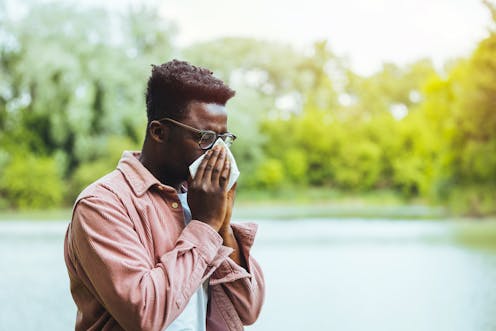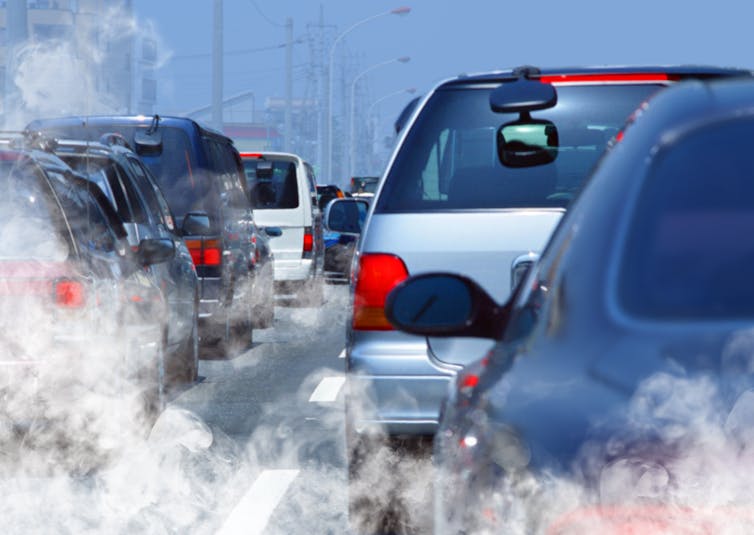
There are many things a person will expect to be different when moving to a new country. The language, the social norms, the cuisine – even the weather.
One thing you might not expect to be different when moving abroad is your hay fever symptoms. Yet, odd as it may sound, many expats report worse seasonal allergy symptoms after moving to a new country.
While there are many reasons your hay fever might be worse when you move to a new country, the good news is there are also many things you can do to ease your suffering.
1. New allergens
The primary reason your hay fever may worsen when you move abroad is the change in allergens. Each continent has its unique mix of plants, trees and grasses – and they release pollen at different times throughout the year.
When you move to a different country, you expose yourself to new allergens that your immune system may not be accustomed to. This may cause your body to react more strongly to these unfamiliar triggers, leading to more severe hay fever symptoms. For some, this may cause them to develop hay fever for the first time.
2. Different climate
Moving to a different country often means experiencing new climate patterns and seasonal changes. These variations can have a profound effect on hay fever sufferers.
For instance, if you move from a temperate climate to a tropical one, you may encounter perennial allergens – such as dust mites and mould – that thrive in warm and humid environments. Similarly, if you move to a Mediterranean country, you may encounter olive pollen for the first time, which is a common hay fever trigger.
The timing and peak of pollen seasons can also be vastly different depending on the part of the world you’re in – with some regions (such as Switzerland) having longer, more intense pollen seasons than others.
This may not only worsen seasonal allergy symptoms, it may also cause symptoms to be longer lasting.
3. Your genetics
Individual genetics play a significant role in how a person responds to allergens. This means some people are inherently more susceptible to hay fever due to their genetic makeup – making them more vulnerable to the allergens they encounter in a new country.
We don’t know which genes are linked with specific pollen allergies. But if you’re worried about your likelihood of developing seasonal allergies in the country you’re moving to, private genetic tests can determine your risk.
4. Air pollution
Poor air quality can affect hay fever symptoms. Moving to an area with higher levels of air pollution may make your hay fever symptoms worse. This is because pollutants, such as diesel exhaust fumes, can interact with allergens, particularly those that irritate the respiratory system, such as mould and dust.

Managing symptoms
Your hay fever symptoms will probably improve over time as your immune system adapts to the new environment. Your degree of allergen exposure, which allergens you’re most sensitive to and how effectively you’re managing symptoms will also affect the severity of your symptoms.
It’s essential to stay vigilant and continue managing your hay fever to prevent chronic symptoms and potential complications.
Here are a few easy things you can do:
Avoid allergens: Try to avoid exposure to allergens that trigger symptoms. This may mean staying indoors on days when pollen count is high or wearing a mask when outdoors. A standard surgical mask works well to filter pollen particles.
Use air filters: Consider using Hepa (high-efficiency particulate air) filters in your home or workplace to help remove airborne allergens. These work on all types of allergens, including indoor allergies such as mould, as well as outdoor allergens such as pollen.
Close windows: Closing windows during high pollen counts will prevent allergens from entering your home. This should reduce hay fever severity.
Take antihistamines: These are medications that help reduce symptoms by blocking the effects of histamine, a chemical released by cells during an allergic reaction. The best antihistamines for hay fever are oral H1 antihistamines (such as cetirizine or loratidine) or nasal corticosteroids. These should ideally be taken before exposure to allergens and should be continued throughout the allergy season. It’s important to talk to your doctor before starting any new treatment for hay fever to ensure you’re taking the right type for you.
Consider immunotherapy: Immunotherapy, also known as allergy shots, can help reduce hay fever symptoms by desensitising your immune system to specific allergens over time. Immunotherapy needs to be done multiple times and can take several months or even years to provide full benefits. But since immunotherapy modifies the body’s immune response to allergens, it provides long-lasting relief from hay fever symptoms.
Manage stress: Stress can make hay fever symptoms worse. This is because chronic stress elevates cortisol (a stress hormone) levels. Cortisol negatively affects immune cells, changing their function. The body also releases histamines when stressed. Increased histamine levels in your bloodstream can worsen allergy symptoms. Managing stress through meditation, yoga or deep breathing may help to reduce cortisol levels – and subsequently hay fever symptoms.
If you’re someone who has recently moved to a new country and found your seasonal allergies are worse than usual, rest assured this is normal. Just as it’ll take time to adjust to your way of life, it will also take your body time to adjust to the new environment you’re in. Reducing allergen exposure as much as you can will go a long way in reducing symptom severity.
The authors do not work for, consult, own shares in or receive funding from any company or organisation that would benefit from this article, and have disclosed no relevant affiliations beyond their academic appointment.
This article was originally published on The Conversation. Read the original article.







